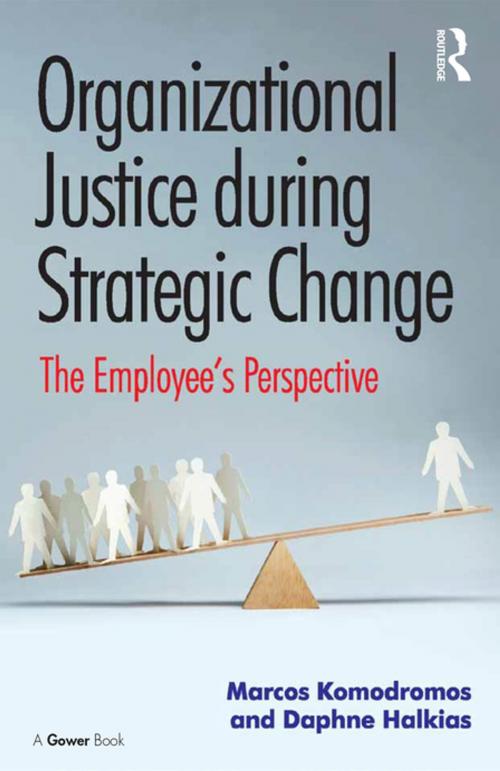Organizational Justice during Strategic Change
The Employee’s Perspective
Business & Finance, Management & Leadership, Planning & Forecasting, Leadership| Author: | Marcos Komodromos, Daphne Halkias | ISBN: | 9781317085058 |
| Publisher: | Taylor and Francis | Publication: | March 9, 2016 |
| Imprint: | Routledge | Language: | English |
| Author: | Marcos Komodromos, Daphne Halkias |
| ISBN: | 9781317085058 |
| Publisher: | Taylor and Francis |
| Publication: | March 9, 2016 |
| Imprint: | Routledge |
| Language: | English |
Organizational leaders often struggle to establish and sustain a trusting culture in times of constant changes in the corporate fabric and unethical behavior by corporate leadership. Organizational justice theory provides a means to explain and better understand employees’ perceptions of trust, fairness, and the management of change during strategic change. Qualitative studies have yet to be conducted on how an organizational justice framework would address the need of organizational justice for novel, conceptually derived accounts of non-managerial employee perspectives. The purpose of Organizational Justice during Strategic Change is to be both an academic and practical book. After presenting the theoretical elements of the topic, half the book is devoted to a detailed case study of employee interviews conducted in a large, privately-owned media organization addressing the issues of the book topic. The authors’ research findings from the case study indicated employees who experience trust and positive feelings regarding their treatment within the organization are willing to become involved in the change process and adopt positive working relationships with their colleagues and managers. This study is important for organizational management to gain knowledge and understanding on how employees’ perceptions of distrust and unfairness can lead to resistance and negative behaviors toward organizations and management during strategic change.
Organizational leaders often struggle to establish and sustain a trusting culture in times of constant changes in the corporate fabric and unethical behavior by corporate leadership. Organizational justice theory provides a means to explain and better understand employees’ perceptions of trust, fairness, and the management of change during strategic change. Qualitative studies have yet to be conducted on how an organizational justice framework would address the need of organizational justice for novel, conceptually derived accounts of non-managerial employee perspectives. The purpose of Organizational Justice during Strategic Change is to be both an academic and practical book. After presenting the theoretical elements of the topic, half the book is devoted to a detailed case study of employee interviews conducted in a large, privately-owned media organization addressing the issues of the book topic. The authors’ research findings from the case study indicated employees who experience trust and positive feelings regarding their treatment within the organization are willing to become involved in the change process and adopt positive working relationships with their colleagues and managers. This study is important for organizational management to gain knowledge and understanding on how employees’ perceptions of distrust and unfairness can lead to resistance and negative behaviors toward organizations and management during strategic change.















